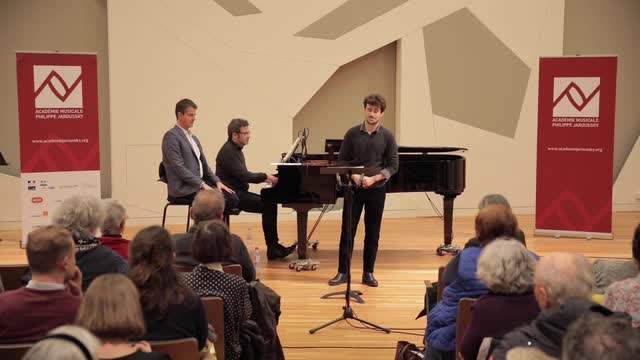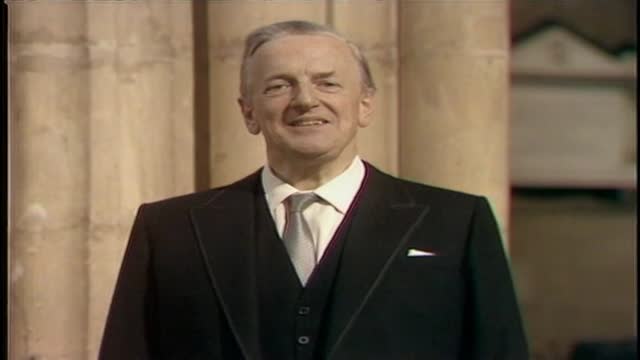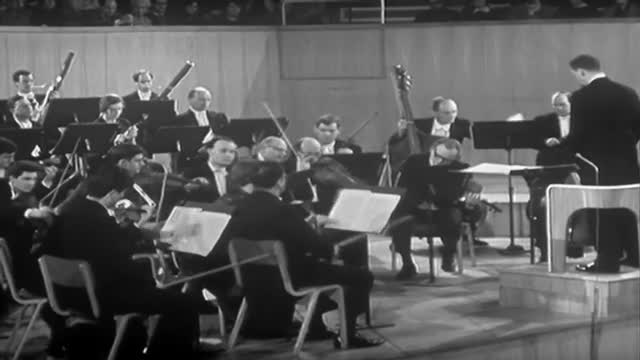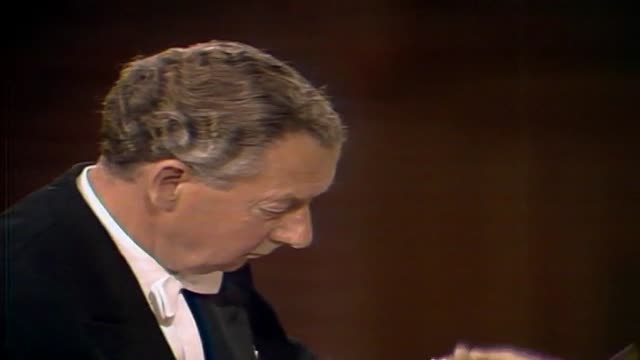Educated at Lancing College, Pears initially studied as an organist at the Royal College of Music and read music at Oxford (where he was also organist at Hertford College for the academic year 1928–1929) but left without taking his degree. He served as director of music at the Grange School, Crowborough, Sussex, from 1930 to 1934 but later said that hearing the tenor Steuart Wilson singing the Evangelist in Bach’s St Matthew Passion was the impetus for his own career as a professional singer. He studied singing in London with Dawson Freer, Lucie Manén and Elena Gerhardt; and was a member of the BBC Singers between 1934 and 1937 and of the New English Singers from 1936 to 1938.
It was while singing with the BBC that Pears first met the composer Benjamin Britten, although it was only after the death in a plane crash of Peter Burra, a friend of Pears, that they became close. They gave their first song recital together as part of a Spanish Civil War relief programme at Balliol College, Oxford, in 1937; as pacifists, they left England for America in 1939. While there Pears continued his vocal studies with Thérèse Schnabel-Behr and Clythie Hine; and in 1940 Britten composed for him the first of many song cycles, the Seven Sonnets of Michelangelo.
Britten and Pears returned to England in 1942, registering as conscientious objectors. In the same year they performed the Michelangelo Sonnets at the Wigmore Hall, later recording them for EMI, while Pears made his operatic stage debut in the UK as Hoffmann / The Tales of Hoffmann at the Strand Theatre, London. He joined the Sadler’s Wells Opera Company in 1943, remaining with it until 1946; and here in 1945 he sang the title role in the first performance of Britten’s Peter Grimes.
Thereafter Pears was indissolubly linked with Britten’s operas. He sang in the first performances of The Rape of Lucretia (Male Chorus, Glyndebourne, 1946); Albert Herring (title role, Glyndebourne, 1947); Billy Budd (Captain Vere, Royal Opera House, 1951; Gloriana (Essex, Royal Opera House, 1953); The Turn of the Screw (Quint, Venice, 1954); A Midsummer Night’s Dream (Flute, Aldeburgh, 1960); Owen Wingrave (General Wingrave, BBC, 1971) and Death in Venice (Aschenbach, Snape, 1973). He also took the leading parts in Britten’s three church operas, Curlew River (Madwoman, Orford, 1964); The Burning Fiery Furnace (Nebuchadnezzar, Orford 1966); and The Prodigal Son (Abbot and Tempter, Orford, 1968).
Pears also pursued a parallel freelance career as an opera singer, appearing at the Royal Opera House (notably as Pandarus in the first performance of Walton’s Troilus and Cressida, 1954) and in Milan, Munich, Rome, Vienna and Zürich; his debut at the Metropolitan Opera, New York came as Aschenbach in 1974. Other notable interpretations included the title role in Mozart’s Idomeneo, Acis in Handel’s Acis and Galatea, Oedipus in Stravinsky’s Oedipus Rex and Vašek in Smetana’s The Bartered Bride. As a concert singer he was a powerful performer in major works such as Bach’s St Matthew Passion (Evangelist) and in lieder, as well as in numerous non-operatic works by Britten, for example the War Requiem.
In addition to being a most musical singer, Pears was a man of wide culture, with great interest in the visual arts and the written word. He was knighted in 1978, but after suffering a stroke in 1980 subsequently withdrew from public life.
A tall, well-built man with considerable personal and stage presence, Pears possessed an individual singing style which can only be described as ‘English’. Nonetheless with his great skills as a composer, Britten was able to exploit Pears’s vocal strengths to considerable effect.
© Naxos Rights International Ltd. — David Patmore (A–Z of Singers, Naxos 8.558097-100).




